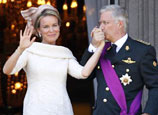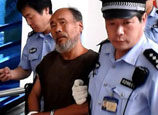
STRICT CONTROL
According to the directive, the construction, purchase, restoration or expansion of office compounds that is done in the guise of building repair or urban planning will be strictly forbidden.
The directive also bans CPC and government organizations from receiving any form of construction sponsorship or donations, as well as collaborating with enterprises, in developing construction projects.
While allowing restoration projects for office buildings with dated facilities, the directive stresses that such projects must be exclusively aimed at erasing safety risks and restoring office functions.
According to the instruction, such projects must be approved first by related administrative departments, with criteria and spending to be set in accordance with local conditions.
Expensive and unnecessary renovations will be prohibited, the directive says.
The directive stipulates that expenditures on office building restoration should be included in CPC and government budgets.
According to the directive, buildings with reception functions, such as those related to accommodation, meetings and catering, should not be restored.
In December 2012, the CPC's leaders pledged to improve the party's work style and eliminate extravagance and bureaucracy.
The party also initiated a campaign in June for strengthening the party's "mass line", which refers to a guideline under which CPC officials and members are required to prioritize the interests of the people and persist in representing them and working on their behalf.
Professor Wang Yukai from the Chinese Academy of Governance said the ban is part of the CPC's plan to improve its work style and promote the "mass line" concept.
Wang said the move may also be related to downward pressure in the economy.
"In order to let the people live comfortably, the government has to tighten its belt and cut its own spending," Wang said.
 |  |
















 China builds 'world's tallest building'
China builds 'world's tallest building'


![]()
